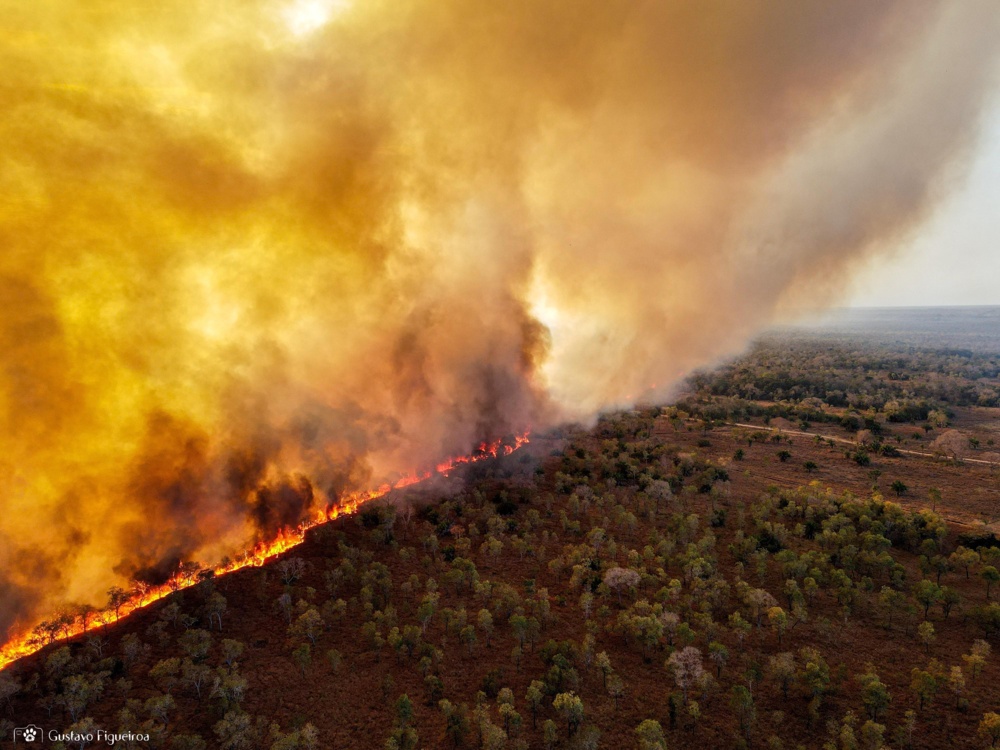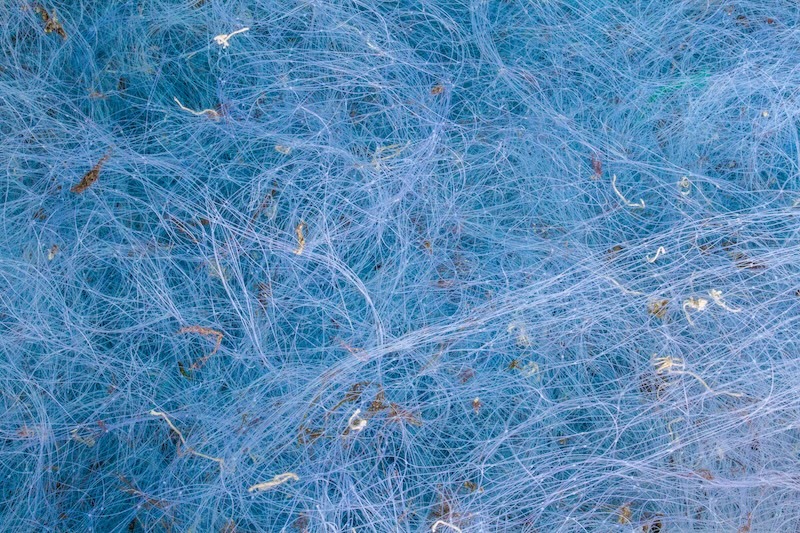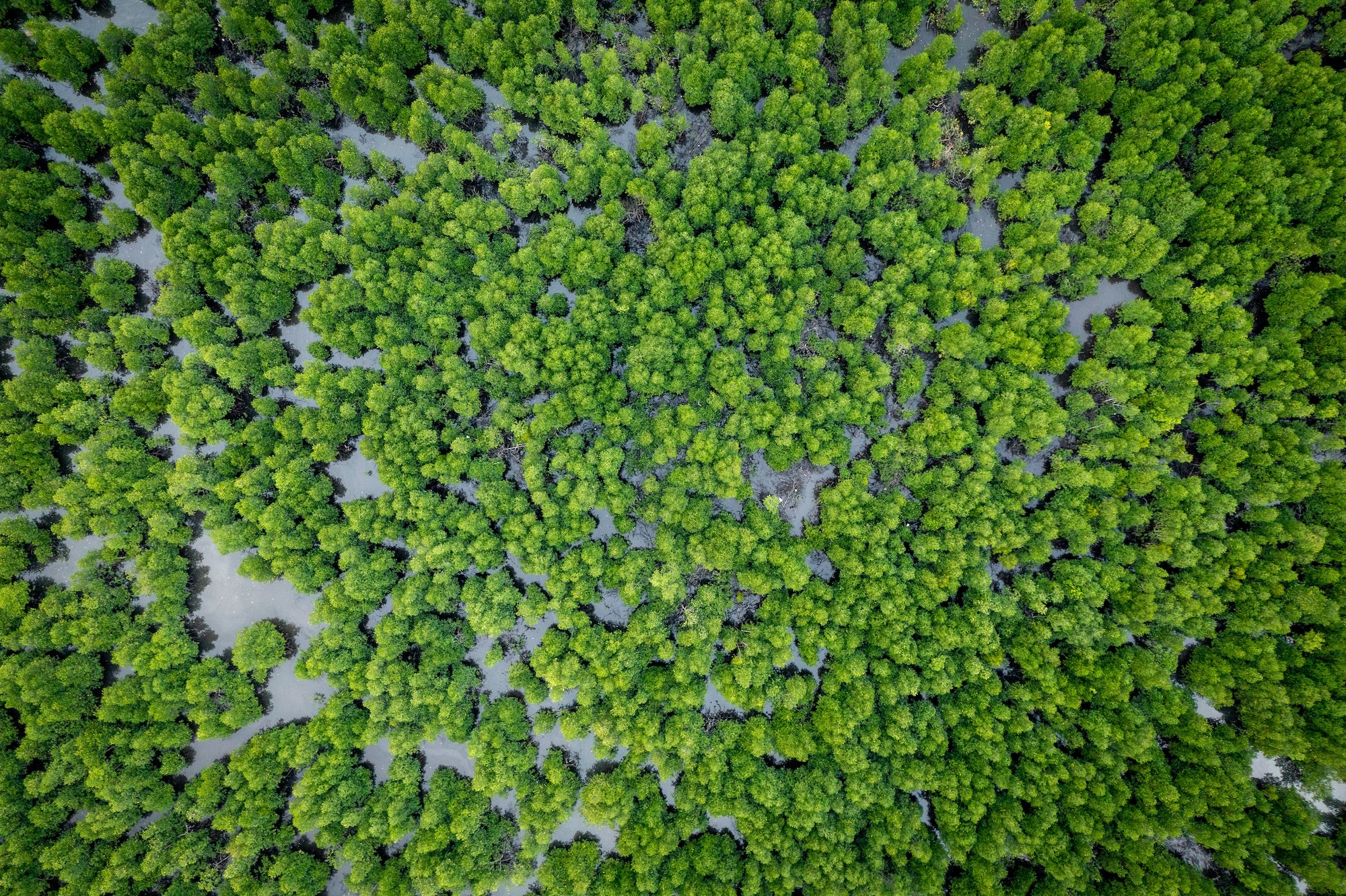
Pantanal fires to reach a global jaguar hotspot in a matter of days
Fires in the Pantanal, the world’s largest tropical wetland, are rapidly approaching a vital jaguar sanctuary. The Environmental Justice Foundation (EJF) warns that the Encontro das Águas State Park, home to the highest concentration of jaguars on Earth, is just days away from suffering irreversible damage unless urgent action is taken.
In 2024 alone, two million hectares have burned in the Pantanal, surpassing the previous record of 1.2 million hectares set by this point in the year in 2020. The lands of the Kadiwéu and Guató Indigenous peoples are burning.
This pattern of repeated severe fires, driven by the climate crisis and land clearing for cattle ranching, has already had catastrophic effects, says EJF. In 2020, fires in the Pantanal killed 17 million vertebrates and emitted as much carbon as Belgium.
Between June 28th and August 18th, the Brazilian Ministry for the Environment reports that 569 animals have been rescued from the flames, with photos showing jaguars and giant anteaters suffering from severe burns. Between August 17th and 19th, 381 hotspots were detected, with 50,000 hectares burning in just those few days. This year, the Pantanal has recorded 8,360 hotspots, impacting 13% of the entire biome.
However, even while the fires blaze, South American and EU agriculture ministers are reportedly working to slow the implementation of the EU’s Deforestation Regulation, which aims to eliminate deforestation from EU supply chains - including from cattle ranching.
Steve Trent, CEO and Founder of the Environmental Justice Foundation, said: “Agriculture ministers across South America and the EU are trying to delay critically-needed European legislation to end deforestation, turning a blind eye while the Pantanal burns. Our global addiction to carbon is drying the wetland out, turning powerful, life-giving rivers into hollow streambeds and setting the stage for the smallest sparks to burst into colossal banks of fire.”
“The immediate priority is clear: put out the fires. This means more firefighters, more funding, and more support on the ground. But truly saving the Pantanal requires much more. We need an immediate halt on further agricultural expansion, major restoration projects for the scorched land, and bold global action to slash carbon emissions and reach a zero-carbon global economy by 2035.”
ENDS
Notes to editors
Follow this link to access photos of the animals burned and injured by the recent fires (please note that the photographs are distressing). If you have any further questions about this developing news story, we would be delighted to put you in touch with our campaigner based in the region, who can provide on the ground contact with the local communities impacted by the fires.
EJF works internationally to inform policy and drive systemic, durable reforms to protect our environment and defend human rights. We investigate and expose abuses and support environmental defenders, Indigenous peoples, communities and independent journalists on the frontlines of environmental injustice. Our campaigns aim to secure peaceful, equitable and sustainable futures.
Our investigators, researchers, filmmakers and campaigners work with grassroots partners and environmental defenders across the globe. Our work to secure environmental justice aims to protect our global climate, ocean, forests and wildlife and defend basic human rights.
For more information, please contact media@ejfoundation.org.
Photo credit: Gustavo Figueiroa/SOS Pantanal
SIGN UP FOR OUR EMAILS AND STAY UP TO DATE WITH EJF

